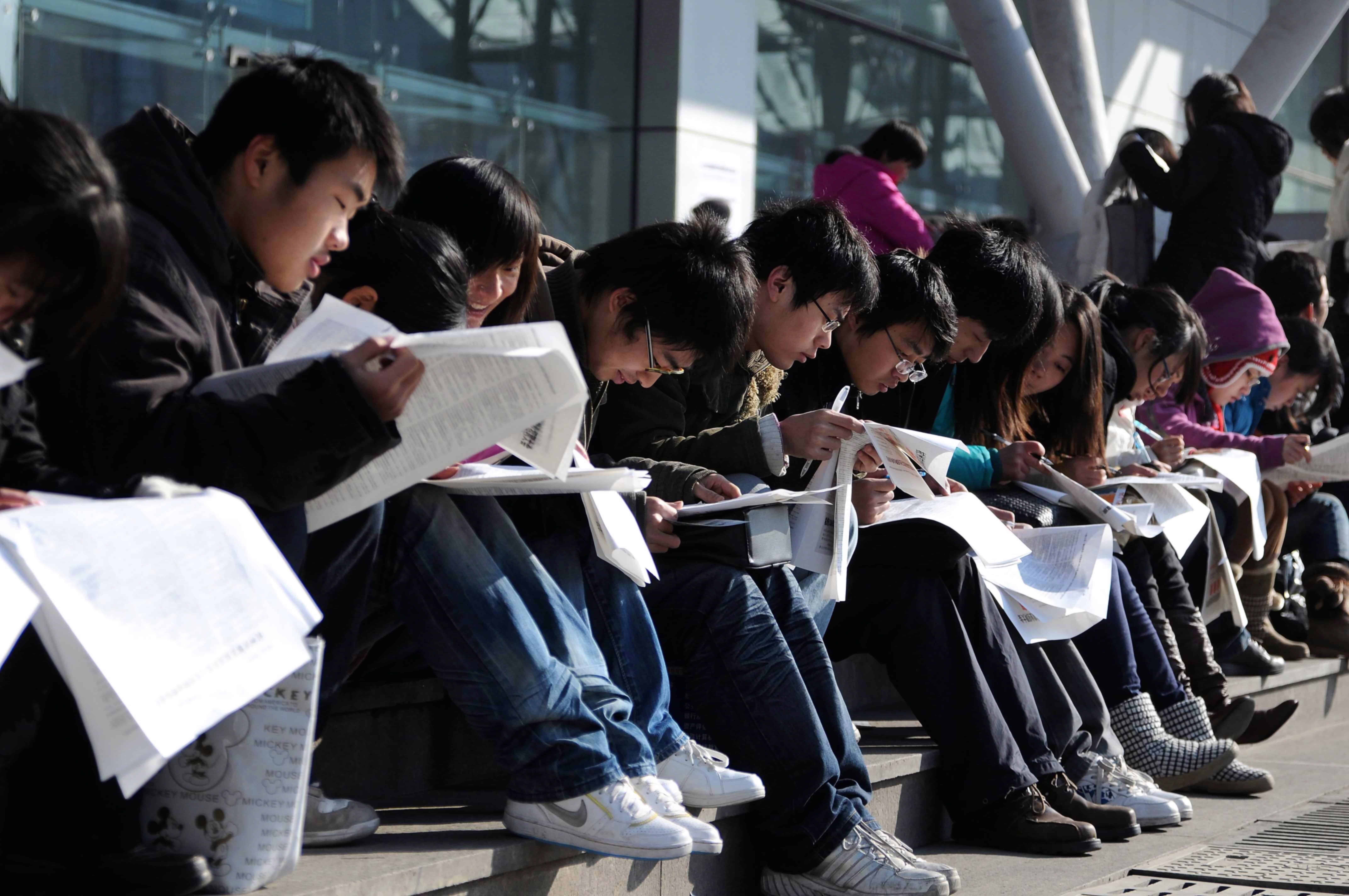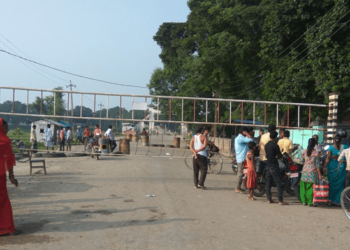China, the world’s second-largest economy, has been facing an increasingly daunting employment challenge.
In 2025, a record number of college graduates will enter the job market, compounding the difficulties of 2024’s cohort, many of whom are still struggling to secure employment.
China’s state media Xinhua News Agency reported, citing data revealed at a joint meeting held by the Ministry of Education and Ministry of Human Resources and Social Security on Nov. 14, that in 2025, more than 12.2 million students will complete their third-level education, up 430,000 from this year’s (2024) number.
Amid a sluggish economy and structural economic shifts, this growing surplus of educated job seekers is exacerbating the nation’s unemployment crisis, raising concerns about social unrest and economic instability.
China’s higher education system has seen a significant expansion over the past two decades, resulting in a surge of college graduates.
In 2023, the number of new graduates reached a record 11.58 million, and this figure is projected to grow even further in 2025.
This rapid growth reflects the government’s push to upskill the workforce and transition the economy from low-cost manufacturing to higher-value industries.
As per analysts, high levels of joblessness among educated youth can lead to frustration and disillusionment, particularly if individuals feel their hard work and educational investments have not paid off.
However, this ambition has collided with economic headwinds, leaving millions of graduates unable to find jobs that match their qualifications. The situation in 2024 highlights these challenges.
Despite their qualifications, many graduates remain unemployed or underemployed.
Data from China’s National Bureau of Statistics shows that youth unemployment in urban areas surpassed 21 percent in 2023, a figure so alarming that the government stopped publishing monthly youth unemployment statistics in the latter half of the year.
With even more graduates expected in 2025, the job market is bracing for a critical stress test.
One of the root causes of this crisis is the mismatch between the skills of graduates and the demands of the job market.
China’s economy has traditionally relied on manufacturing, construction, and agriculture, which are sectors that typically offer limited opportunities for degree holders.
While efforts have been made to foster high-tech industries and innovation, these sectors have not expanded quickly enough to absorb the growing pool of skilled labour.
Moreover, certain industries that traditionally employed large numbers of graduates, such as technology and real estate, are undergoing significant slowdowns.
The tech sector has faced regulatory crackdowns, while the real estate market is grappling with a debt crisis, leaving many companies hesitant to hire.
As a result, a growing number of graduates find themselves competing for a shrinking number of white-collar jobs.
The overemphasis on academic credentials also exacerbates the problem.
A significant proportion of graduates pursue degrees in fields with limited practical application or market demand, such as arts, social sciences, and literature.
This leads to a glut of candidates for certain positions, while industries facing labour shortages—such as skilled trades and manufacturing—struggle to fill vacancies.
China’s economy is experiencing a protracted slowdown, marked by weaker-than-expected growth rates and declining consumer confidence.
The post-pandemic recovery has been uneven, and external challenges, including trade tensions with the United States and geopolitical uncertainties, have further dampened economic prospects.
This sluggish growth has a direct impact on employment. Businesses across sectors are cutting costs and freezing hiring.
Startups, which often provide opportunities for young graduates, are finding it harder to secure funding, further limiting job creation.
The government’s attempts to stimulate the economy, such as through infrastructure spending and monetary easing, have yet to produce significant gains in private-sector hiring.
While China’s centralised governance model allows for swift policy responses, it also faces the challenge of addressing grievances without undermining its legitimacy.
The rising unemployment among college graduates poses serious socioeconomic risks.
As per analysts, high levels of joblessness among educated youth can lead to frustration and disillusionment, particularly if individuals feel their hard work and educational investments have not paid off.
In a society where academic success is deeply ingrained as a pathway to upward mobility, such sentiments can contribute to social unrest.
Unemployed graduates are also a financial burden on their families, many of whom have made significant sacrifices to fund their education.
The growing prevalence of “boomerang children”—young adults returning to live with their parents due to financial instability—further strains household resources and undermines economic independence.
The broader economy also suffers. Unemployment among young people reduces consumer spending, curbing domestic demand and hampering economic growth.
A disillusioned and underemployed workforce can stifle innovation and productivity, undermining China’s long-term goals of becoming a global leader in high-tech and advanced manufacturing.
China’s leadership has historically prioritised social stability as a cornerstone of its governance, and high levels of youth unemployment, coupled with rising inequality and economic uncertainty, could threaten this stability, according to analysts.
The government’s sensitivity to these issues is evident in its control of public discourse around unemployment statistics and its swift response to incidents of unrest.
However, managing these tensions in the long term will require more than suppressing discontent. If the unemployment crisis persists, the risk of social unrest cannot be ignored.
Discontent among educated youth could manifest in various forms, from online dissent to protests and demonstrations.
The rapid dissemination of information through social media platforms makes it harder for authorities to control narratives, amplifying the voices of dissatisfied citizens.
Ultimately, addressing the employment needs of its educated youth is not just an economic imperative but also a societal one, vital to maintaining social harmony and ensuring sustainable development, they added.
Historical precedents show that unemployment and economic hardship often serve as catalysts for broader demands for reform.
While China’s centralised governance model allows for swift policy responses, it also faces the challenge of addressing grievances without undermining its legitimacy.
China’s unemployment crisis among college graduates is a complex and multifaceted challenge that reflects deeper economic and structural issues.
As a record number of graduates prepare to enter the job market in 2025, the pressure on policymakers to address this issue will intensify.
Failure to provide meaningful employment opportunities could exacerbate social tensions and hinder the country’s long-term economic goals.
Experts opined that to navigate this challenge, China must implement a combination of short-term relief measures and long-term structural reforms.
Diversifying the economy, aligning education with market demands, and fostering a culture of entrepreneurship will be crucial steps in mitigating the crisis, according to them.
Ultimately, addressing the employment needs of its educated youth is not just an economic imperative but also a societal one, vital to maintaining social harmony and ensuring sustainable development, they added.









Comment